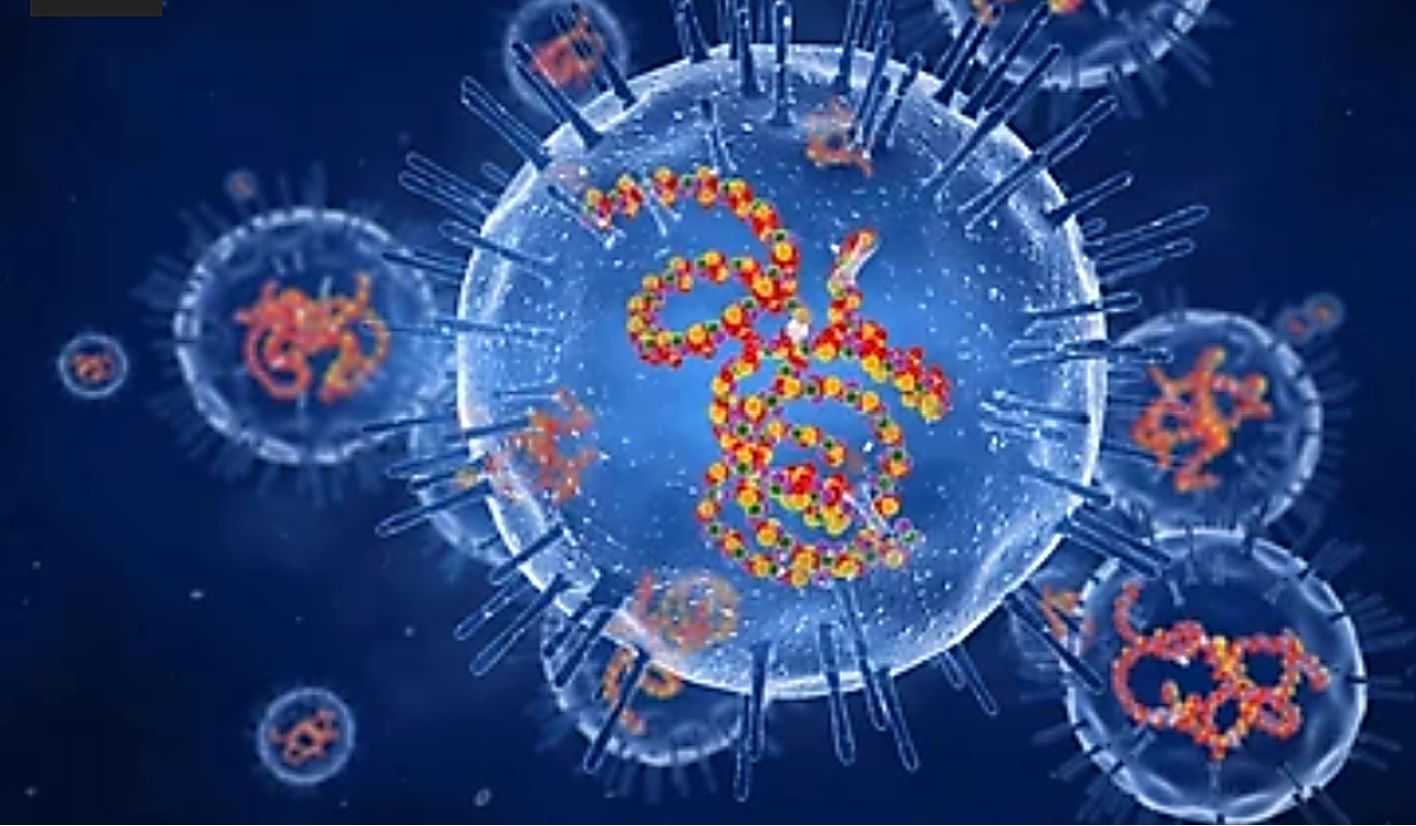Structural Research of Matonaviridae
The Matonaviridae are a class of small enveloped viruses with a single-stranded positive-sense RNA genome of approximately 9.6-10 kb. The structural and functional description of Matonaviruses is based on the characterization of the rubella virus (RUBV). The RUBV is a global health threat and is transmitted by droplet transmission. Most infections occur in children and infection with RUBV during pregnancy can lead to congenital rubella syndrome (CRS), which can cause severe damage to the fetus. No antiviral treatment is currently available. In recent years, researchers have explored the structure of RUBV, which will guide the future development of novel antiviral therapies to treat rubella or related viral infections.

Genome Structure of RUBV
RUBV has a single-stranded positive-sense RNA genome surrounded by an icosahedral capsid. Its 40S genome has a 5' cap structure and a 3' end poly(A) tail. The RUBV contains two open reading frames (ORFs), the 5'-ORF encodes the non-structural polypeptide p200, which is processed into p150 and p90. The p150 protein consists of the methyltransferase (MTase) and protease domains, and the p90 protein has the deconjugating enzyme and RNA-dependent RNA polymerase (RdRp) structural domain. Non-structural proteins are essential for RNA virus replication and multiprotein processing. The 3'-ORFs encode structural proteins, capsid, and surface glycoproteins E1 and E2.
Progress in Structural Research of RUBV
The researchers used cryo-electron tomography (cryo-ET) and cryo-electron microscopy (cryo-EM) to resolve the structure of RUBV. The research revealed that RUBV particles are 50-90 nm, spherical and tubular, and include an electron-dense nucleocapsid core (NC), lipid bilayer, and surface glycoproteins. The NC consists of capsid proteins and genomic RNA encapsulated in a viral membrane. The capsid protein interacts with the genomic RNA and assembles into an icosahedral nucleocapsid. The transmembrane glycoproteins E1 and E2 are helically arranged in rows on the particle surface to form the viral spiking complex. The E1-E2 heterodimer on the viral surface is a major target for neutralizing antibodies during the infection.
Creative Biostructure specializes in research in viral structural biology. We offer high-quality, validated virus-like particles (VLPs) products that can be used to resolve viral structures at the atomic level. Our VLP products provide an excellent platform for the development of prophylactic and therapeutic vaccines or as drug delivery vehicles.
| Cat No. | Product Name | Virus Name | Source | Composition |
| CBS-V929 | Rubella Virus VLP (E1; E2; Capsid) | Rubella virus | HEK293 | E1; E2; Capsid |
| Explore All Matonaviridae Virus-like Particle Products | ||||
At Creative Biostructure, we offer comprehensive viral structure analysis services and cutting-edge virus-like particles (VLPs) products. Our viral structure analysis service is based on cryo-electron microscopy (cryo-EM), which reveals the complex structure of viruses and is invaluable for understanding viral replication, host interactions, and developing anti-viral strategies.
In addition, our VLP products are carefully designed to mimic the morphology and surface features of target viruses, providing a safe alternative for research into viral entry mechanisms, immune responses, and vaccine development. If you are interested in our services or products, please feel free to contact us. Choose us as your trusted partner to drive breakthroughs in virus research and fight viral diseases more effectively.
References
- Mangala Prasad V, et al. Assembly, maturation, and three-dimensional helical structure of the teratogenic rubella virus. PLoS Pathog. 2017. 13(6): e1006377.
- Cheong EZK, et al. Crystal structure of the Rubella virus protease reveals a unique papain-like protease fold. J Biol Chem. 2022. 298(8): 102250.
- Das PK, Kielian M. Molecular and Structural Insights into the Life Cycle of Rubella Virus. J Virol. 2021. 95(10): e02349-20.